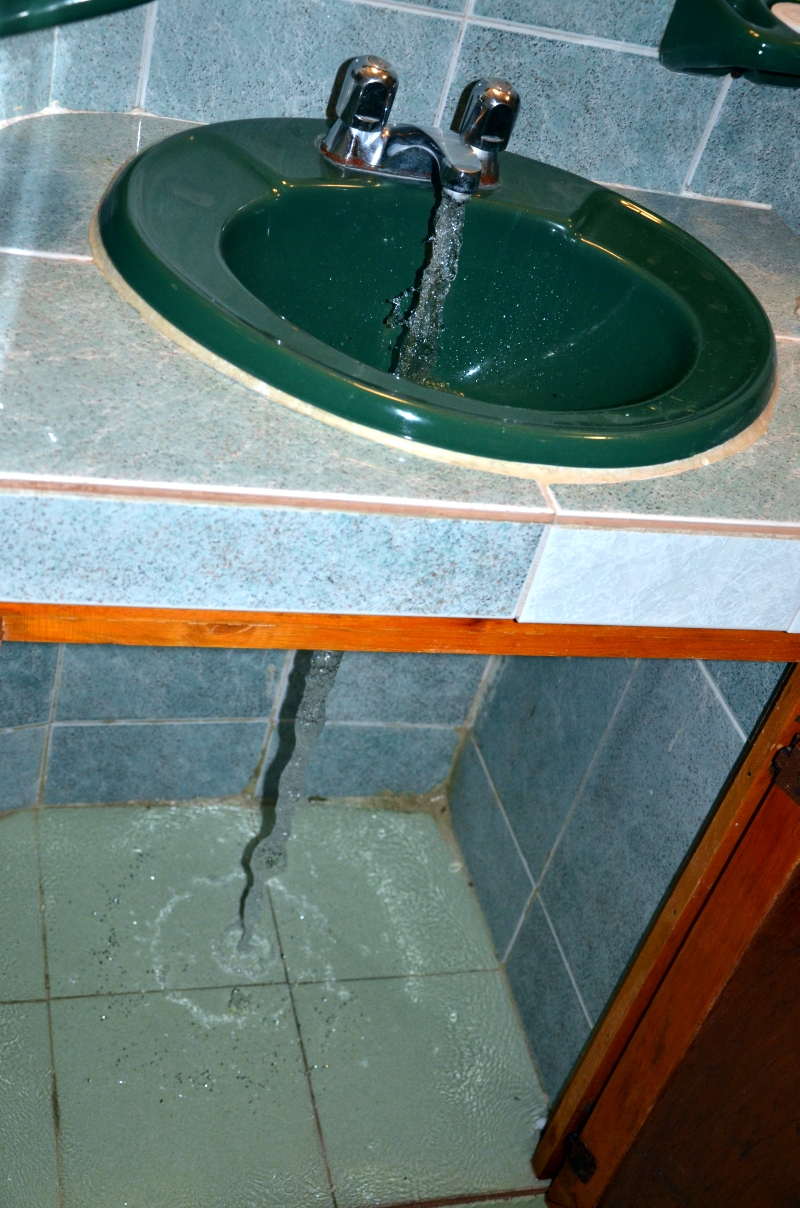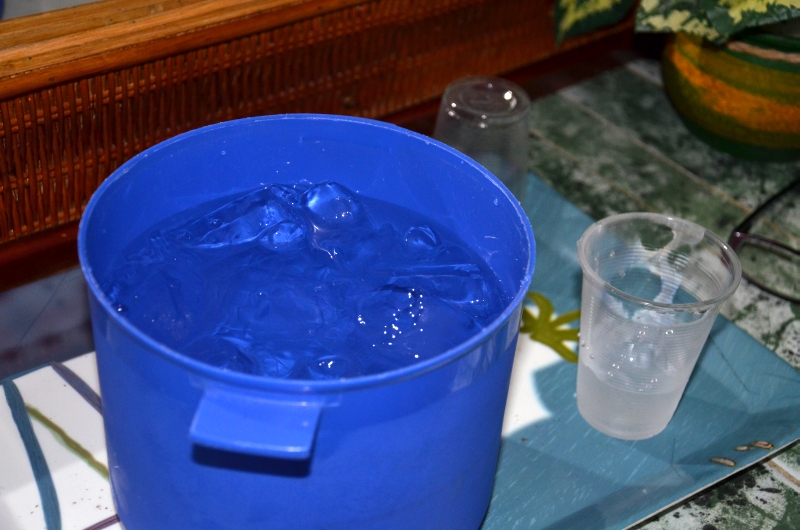What a change of scenery when entering Venezuela! No more bikes, but old American cars. This immediately reminded me of Cuba, except that in Cuba the cars are from the fifties awhile here they’re rather from the seventies, completely in ruins, one wonders how they can still be driven. Unlike the Cubans, who care and polish their machines, here they are all battered and crumbling, often without windows or without lighting.
I had promised myself never to drive at night, especially in countries considered as "sensitive" Well, Venezuela is one of these sensitive countries and right the first day I drove several hours driving at night and in the rain on top of that. The border crossing had taken longer than expected, and night falls very quickly over here. It starts to getting dark at 5.30pm, and 15 minutes later, there is total darkness. In many countries the roads up to the borders are not in good condition, especially if the neighboring country is not really a friendly country. Venezuela is no exception, and the first km here were appalling. At first I had to smile when the customs officer told me it would take me three hours to cover the 110 km to Maracaibo, but in the end, I struggled to achieve this time.
Once it was dark my speed has dropped dramatically. I drove at barely 30 km / h, trying to guess the ghost cars circulating without lighting and to avoid the biggest potholes. But, far more dangerous, even criminal, are the manholes that often have no more cover because it was stolen. Fall into a hole like that would just mean the end of my trip. Finally, about a dozen checkpoints from military and police did not accelerate things either.
Venezuela is an oil exporting country, and already before Mister Hugo Chavez and his socialism, gasoline was cheap here, really cheap: I broke a record that I thought was impossible to beat for ever: The one tank of the cheapest tank filling. My previous record was set last year in Iran, where I refilled my car for just $ 1.
But in Venezuela, I just totally legally filled up for just $ 0.25!
On the other hand, since the two days I've been in the country, I sleep in dilapidated hotel where nothing works, except for the smile and the kindness of Venezuelans. Prices unfortunately are those from good hotels in Europe, ranging between 100 to 200 dollars. This is due to a totally stupid exchange of Venezuelan Bolivar. The official exchange rate is 4500 bolivars per $, while on the black market the price is around 8500 B. Unfortunately, hotels are obliged to apply the official rate.
Let’s take today’s hotel, for example: The "Paradise Beach" to Turacas. For $ 150 I get a “matrimonial” room
Let’s forget the broken elevator.
The promised internet connection did not work, but I'm getting used to it.
There is no hot water either, no big deal. A scam I often se on my travels, is that for a small fee is that one tries to offer an upgrade to a room with bathtub instead of a shower. But there is almost never plug in the bathtub, so one has to take a shower never the less. And the water is cold anyway. Another scam is telling the hotel is fully booked (blatant lie) and that there is just a suite left at a higher price, of course. Strange enough, this suite later strangely resembles a standard room.
Let’s continue our tour. There is the sink, beautifully encased in wooden furniture. As I washed my hands, suddenly my feet became wet. After verification, I found out that the sink is not connected to a discharge pipe, but the water flows gently into the cabinet and then out from underneath to disappear a bit further into a hole on the floor.
The restaurant is closed, and when I asked for some drinking water, the charming receptionist brought me a nice blue plastic pot with fresh water.
Finally, the bed sheets, dirty and smelly, have not been changed for ages, and I slept in my sleeping bag to feel a bit more at ease.
I have slept in many funny and shitty places, but not for 150$ so far


Room service